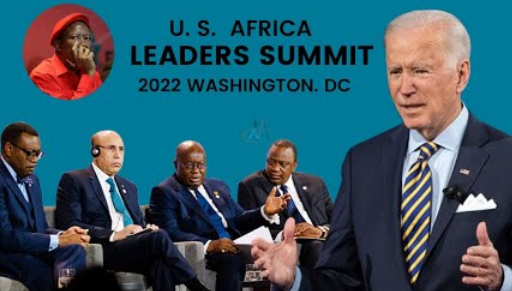Photo: YouTube
Africa remains the most impoverished continent in the world because of the structural impediments to development that were created when it was partitioned by European powers at the Berlin Conference of November 15, 1884—February 26, 1885 presided over by chancellor Otto von Bismarck.
At that conference King Leopold II of Belgium infamously declared “I’m determined to get my share of this magnificent African cake. Under Leopold’s genocidal regime an estimated 10 million Congolese were exterminated—those who didn’t produce enough rubber or ivory for the colonial “masters”. Other European countries that seized African territories with massacres and wars of conquest after the conference included: Britain, France, Germany, Belgium, Portugal, and Spain. South Africa by the time of the conference was already controlled by the Dutch and the British.
As the late Walter Rodney clearly outlined in “How Europe Underdeveloped Africa” European colonization not only blocked but actually retarded Africa’s organic development. Africa’s institutions of governance were overthrown, agriculture and indigenous manufacturing were destroyed, labor exploited, and land and natural and mineral resources stolen.
It’s true that formal decolonization occurred in Africa, beginning with Ghana’s in 1957 and ending with South Africa’s in 1994.
However, Colonialism’s worst lasting legacy was establishing the current international relations and trading regime that continues to exploit Africa: African countries are consigned to producing so-called “primary commodities” for the factories of the industrialized countries that now includes the United States and China. Africa’s other primary roles are providing cheap labor and markets for products from the industrialized countries.
This prevailing regime is maintained, policed, and enforced by the International Monetary Fund (IMF). The term coined for this arrangement by the late Kwame Nkrumah, Ghana’s first leader, was “neocolonialism.”
Africans who have struggled to overthrow this exploitative regime, including Nkrumah himself, Patrice Lumumba, Modibo Keita, Thomas Sankara, and others were either deposed or assassinated. As a result most African leaders have become cowards and beholden to outside powers. They are not willing to pay the maximum price and to defend Africa’s interests by using Africa’s resources to create wealth and prosperity for Africans.
Such misrulers are busy outracing each other to see who gets to sell-out Africa to the industrialized world. They are kicking off farmers from the land in order to hand them to so-called foreign investors, and offering Africa’s mineral and natural resources for a pittance to these same predators.
No wonder impoverished and demoralized African youth continue to drown as they flee the continent in rickety little boats trying to cross the Atlantic.
While the U.S. attended the 1884-1885 Berlin Conference as an observer, it never seized any territory in Africa. As European power declined after World War II the United States emerged as the premier industrial and imperial power.
Today the U.S. dominates Africa’s destiny by virtue of its majority share in the IMF and the World Bank. And the U.S. has been hosting its own modern version of the Berlin Conference. It’s called the U.S.-Africa Leaders Summit. The next upcoming one is December 13 to December 15 in Washington D.C., with President Joe Biden playing the role of Bismarck.
And instead of European powers scrambling for Africa’s riches this time U.S. corporations will be salivating over Africa’s resources. They will dine and wine the sell-out African leaders and sign deals to exploit Africa’s labor and mineral and natural resources.
An earlier African generation resisted and threw out European colonialism. Today’s African youth must resist and throw out the crop of leaders who have betrayed their destiny to the outside world. They must keep demanding for leaders like the late Thomas Sankara who said: “Let’s consume what we produce and consume what we produce. Africa’s market for Africa.”






